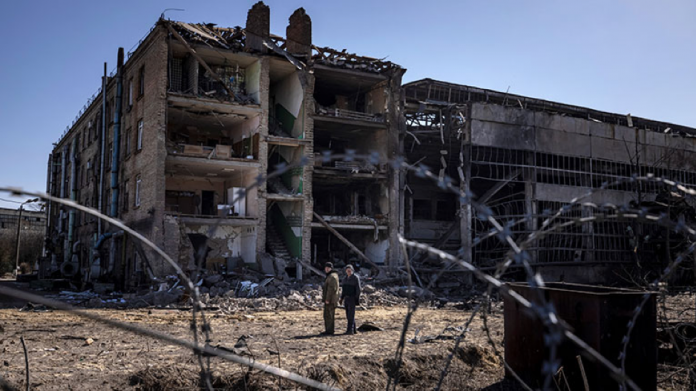An estimated 4.8 million jobs have been lost in Ukraine since the start of the Russian aggression, according to a new brief by the International Labour Organization (ILO). The study estimates that if hostilities were to escalate employment losses would increase to seven million. However, if the fighting was to cease immediately a rapid recovery would be possible, with the return of 3.4 million jobs. This would reduce employment losses to 8.9 per cent, according to the brief.
The Ukrainian economy has been severely affected by the Russian aggression. Since it began, on 24 February, more than 5.23 million refugees have fled to neighbouring countries. The refugees comprise mainly women, children, and persons over the age of 60. Of the total refugee population, approximately 2.75 million are of working age. Of these, 43.5 per cent, or 1.2 million, were previously working and have lost or left their jobs. In response to this disruption the Government of Ukraine has made considerable efforts to keep the national social protection system operational by guaranteeing the payment of benefits, including to internally displaced persons, through the utilization of digital technologies.
The crisis in Ukraine may also create labour disruption in neighbouring countries, mainly Hungary, Moldova, Poland, Romania and Slovakia. If the hostilities continue, Ukrainian refugees would be forced to remain in exile longer, putting further pressure on the labour market and social protection systems in these neighbouring states and increasing unemployment in many of them. The significant economic and employment disruption affecting the Russian Federation are having significant ripple effects on Central Asia, especially countries whose economies depend on remittances from the Russian Federation, such as Kazakhstan, Kyrgyzstan, Tajikistan and Uzbekistan. These four states are among the top ten countries of origin for migrants in the Russian Federation, and many of these migrants send a significant share of remittances back to their home countries. If the hostilities and the sanctions against the Russian Federation lead to job losses for migrant workers in the Russian Federation and these migrant workers return to their countries of origin, there will be severe economic losses in Central Asia as a whole.
The aggression in Ukraine has also created a shock for the global economy, further complicating the recovery from the COVID-19 crisis. This is likely to affect growth in employment and real wages and put additional pressure on social protection systems. In many high-income countries, which have recently witnessed signs of a stronger labour market recovery, the fallout from the Ukraine crisis may worsen labour market conditions and reverse some of the gains made. The situation is particularly hard in low- and middle-income countries, many of which have been unable to fully recover from the impact of the COVID-19 crisis.























